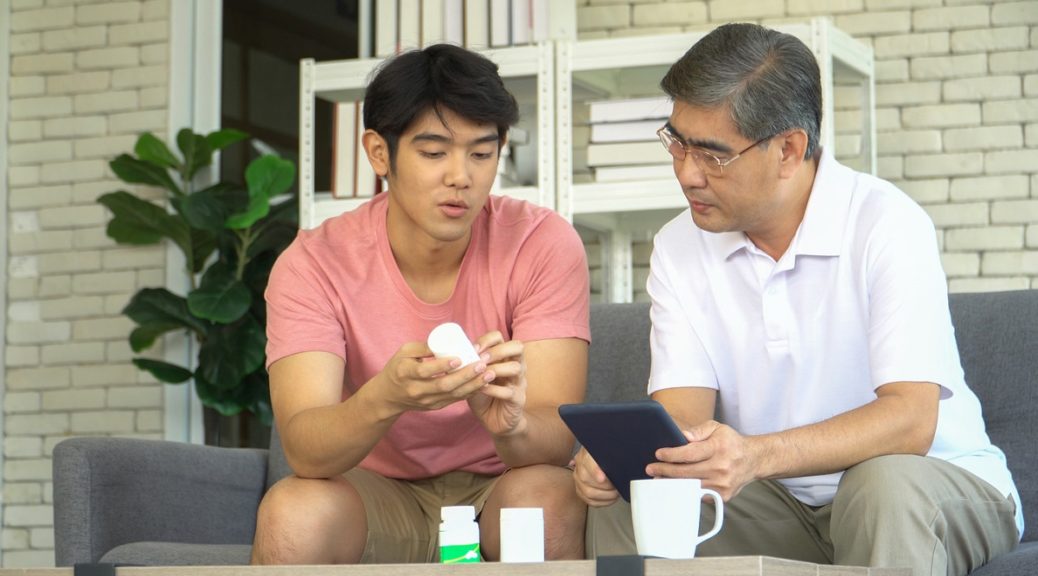Medication Safety Tips to Help Prevent Suicide in Youth and Adults

Updated May 30th, 2025
Learn how to reduce overdose risks, recognize warning signs and open mental health conversations at home.
Why Suicide Attempts Involving Medications Are Increasing
Emotional distress is growing among youth and adults alike. The pressure of social media, peer and academic expectations, trauma and identity struggles can overwhelm young people. At the same time, adults may face financial stress, caregiving responsibilities, chronic health concerns or grief.
According to the CDC, suspected suicide attempts by self-poisoning among youth ages 10 to 19 rose by 30% between 2019 and 2022, with females accounting for nearly 80% of those cases (CDC, 2023). Poison control data also shows an increase in intentional overdoses involving common medications like acetaminophen, antihistamines and cold relief tablets (AAPCC, 2023).
Why Over-the-Counter Medications Can Be Dangerous
Medications that seem safe in small doses can be toxic or deadly in large amounts. Because OTC medications don’t require a prescription, they are often easy to access in homes, backpacks and store shelves.

Dr. Van Tran
“These medications are easy to get,” says Dr. Van Tran, Medical Provider with Camber Mental Health. “You don’t need a prescription and it’s not hard to find them in large quantities.”
Pain relievers like acetaminophen and ibuprofen, as well as antihistamines and cold medicines, are among the most commonly used substances in self-poisoning attempts.
How to Safely Store Medications and Reduce Overdose Risk
Medication safety at home is a key part of suicide prevention. Dr. Tran recommends:
- Storing medications in a secure or locked location
- Avoiding large stockpiles by buying only what’s needed
- Safely disposing of expired or unused medications
- Keeping adult medications out of reach and out of sight
For caregivers and adults living in shared spaces, consider using a small lockbox or cabinet with limited access.
How to Talk to Kids and Teens About Medication Safety
Use everyday moments to teach. When giving medication, explain what it’s for and why it’s helpful in small doses.
“You can say, ‘This helps your body feel better, but too much can be dangerous,’” Dr. Tran says. “It builds understanding and reduces curiosity or misinformation.”
Help kids see medication as a tool for healing, not something to experiment with.
How to Start Mental Health Conversations at Home
Creating space to talk openly is one of the most protective things you can do. You don’t have to wait for a crisis to check in.
Try:
- Asking open questions like “What’s been hard lately?”
- Reassuring them that it’s okay to feel overwhelmed
- Reminding them that support is always available
- Offering another trusted adult if they don’t feel ready to talk to you
“You can’t always force a conversation, but you can build trust so they know you’re there when they need you,” says Dr. Tran.
Warning Signs of Emotional Distress in Youth
Not all children experiencing emotional pain show obvious signs. Some behaviors to watch for include:
- Withdrawing from friends or family
- Sudden disinterest in school or hobbies
- Drastic changes in sleep or eating patterns
- Decline in grooming or personal care
- Avoiding school or skipping assignments
If something feels off, start with a gentle, curious question:
“You haven’t seemed like yourself lately. Want to talk about it?”
Supporting Adults at Risk of Medication-Related Suicide
Adults can also be at risk for suicide involving OTC or prescription medications. The stress of caregiving, chronic illness, trauma or isolation can become overwhelming without support.
In 2022, suicide was the 11th leading cause of death in the United States, claiming more than 48,000 lives (CDC, 2023). Many of those deaths involved medications or substances commonly found at home.
How to support an adult who may be struggling:
- Check in often and ask open, compassionate questions
- Secure shared medication supplies at home
- Watch for signs of withdrawal, hopelessness or substance misuse
- Encourage professional support, even if it’s starting with a phone call
Warning signs in adults may include:
- Expressing hopelessness or feeling like a burden
- Sudden withdrawal from friends or responsibilities
- Giving away possessions or talking about death
- Increased use of alcohol or drugs
A calm, caring conversation can be life-changing.
What to Do If You’re Worried About Someone
If you think someone may be at risk of suicide or has taken a large amount of medication:
- Call or text 988 to reach the Suicide & Crisis Lifeline
- Call 911 in any emergency
- Contact a doctor or mental health provider as soon as possible
Camber Mental Health offers inpatient care for both youth and adults. Our team is available 24/7 to provide guidance and admissions support.
You don’t need to be a mental health expert to help someone in crisis. Safe storage, consistent check-ins and honest conversations can make a life-saving difference for the people you care about.
Get Help Today




